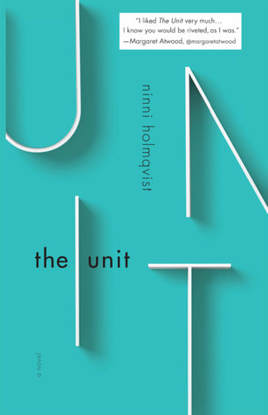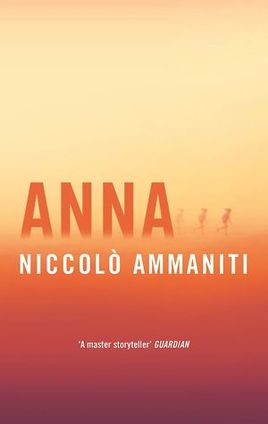The Unit by Ninni Holnqvist translated by Marlaine Delargy
With attractive apartments, gourmet meals, beautiful gardens and myriad sporting and cultural opportunities, the Unit seems almost utopian. For those accustomed to a degree of financial and social exclusion, it’s heavenly to find themselves in a welcoming community where they want for nothing. But there’s a catch, and it’s a big one. While Dorrit quickly adjusts to the constant surveillance (even when making love or on the toilet), and enjoys participating in a research project on the impact of intense exercise, it’s hard to face the fact that, although healthy, she’s come here to die. However pleasant the Unit, however compassionate the staff, there’s no denying its primary task is providing donor organs for the more deserving community outside its reinforced glass dome.
A dystopian novel needs not only to create a convincing alternative society, but provide a mirror to our own. Swedish author Ninni Holnqvist poses the ultimate question in her debut novel when Arnold, Dorrit’s psychologist, asks “What’s the meaning of life?” Her country seems to have decided that “life is capital… to be divided fairly among the people in a way that promotes reproduction and growth, welfare and democracy.” (p 103) For life in the Unit to be bearable, both staff and residents need to believe that some lives can be sacrificed for the greater good.
If you have followed my reviews for a while, you’ll know that I wondered about the psychologist. He certainly prioritises his client’s well-being, but he does ask a lot of questions! And of course his practice is constrained by the system, but perhaps ethically that’s not so different from therapy in secure units; under apartheid; for combatants in wartime.
Although I found the ending a little rushed, this is an engaging and thought-provoking novel. Thanks to Oneworld Publications for my review copy.
Anna by Niccolò Ammaniti
The lavish quotes from broadsheet reviews on the back of my copy (courtesy of UK publishers Canongate) raised my expectations, perhaps unduly. For me, this was a simple story of sibling love and survival, simply told. While I’d have welcomed a greater challenge, Niccolò Ammaniti’s sixth novel to appear in English (there’s no mention of a translator for Anna, although it was published first in Italy) is an easy read.
If you like the sound of Anna, you might also enjoy Gold, Fame, Citrus and Station Eleven. For my reviews of other novels set in the future, see this thread.























 RSS Feed
RSS Feed





















